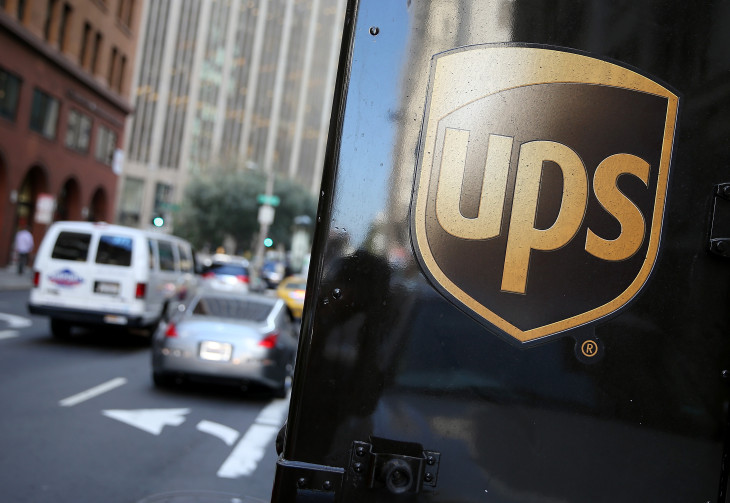Artificial intelligence in transportation marketForbes Insights analysis shows that 65% of senior transportation-focused executives believe logistics, provide chain and transportation processes are in the midst of a renaissance—an era of profound transformation. The AI-driven transformation will also influence the expansion and development of cities. For example, the new era of expense-successful, swifter and secure transportation with autonomous automobiles, may well prompt a de-urbanization trend in distinct if you believe about that the time spent in autonomous vehicles can be totally productive with the skills of an up-to-the-minute workplace.
In October 2016, Uber announced a driverless truck created by Otto that successfully drove 120 miles at 55 mph with out any problems. In addition, Daimler trucks has created an 18-wheeler semi-autonomous truck with an auto-pilot technique. As the transport industry becomes far more information driven, the talent profile will also shift as new skills will be necessary in the workforce to maintain up with ongoing alterations. Companies will require new methods to navigate this dynamic atmosphere. PreScouter can support develop such strategies. Get in touch with us right now.
Owing to the high expense, the adoption of AI for the transportation sector mostly occurs by bigger producers only therefore, restraining the growth of the AI in transportation market. Transportation organizations also use AI and the IoT to mitigate costly repairs and downtime. Internal diagnostics, for example, can alert customers to maintenance concerns, which keeps passengers protected — no blow-outs although traveling down the road at seventy miles per hour, for example — and increases the lifetime value of the vehicle.
How Will AI Influence The Transportation Industry?artificial intelligence in transportation industry
artificial intelligence in transportation industryForbes Insights research shows that 65% of senior transportation-focused executives think logistics, provide chain and transportation processes are in the midst of a renaissance—an era of profound transformation. Companies that overly rely on subcontractors while presuming that they would do their bidding, may possibly run into problems if they don’t. What AI could do here is to make the uncertainties go away, and make this component of preparing actually plannable to a reasonably constant degree. For instance, artificial intelligence could aid curate the subcontractors that are far more inclined to choose up jobs, the pricing slabs they opt for, and in the larger context, the ideal method to optimize prices with these subcontractors.
On the basis of application, the worldwide AI in transportation market place can be categorized into HMI and ADAS. Of the two, HMI is estimated to account for a bigger share in the international industry, mainly due to its larger penetration in trucks than ADAS. Even so, it is estimated that throughout the forecast period, the penetration of ADAS will increase at a more quickly price.
AI is at the moment one of the most overhyped subjects. There is this misguided belief that one particular day, computer systems are going to be smarter than folks. That they are going to take numerous jobs from us and that they are going to begin a war against folks. In actuality, computer systems cannot be folks since they lack creativity, imagination, and they cannot think abstractly. Artificial intelligence is a set of algorithms which can give extremely complex outputs and decisions based on incoming information. As a result when you have an person stream of information such as anything from transport shipments to video and audio information coming from a self-driving car, AI is the software program that can make decisions that are considerably more complex compared to the choices the standard application tends to make.
Artificial Intelligence In Transportation Industryglobal artificial intelligence in transportation market
artificial intelligence in transportation industryForbes Insights analysis shows that 65% of senior transportation-focused executives believe logistics, provide chain and transportation processes are in the midst of a renaissance—an era of profound transformation. Improvement of Public Safety: Security of citizens when traveling by public transport in urban areas is improved by tracking crime data in actual time. This will also enable the police to improve their efficiency by patrolling and maintaining their citizens safe. At the identical time, new players claim a leading role in the under-transformation automotive market place: Uber is testing robo-taxis, Tesla is improving its Autopilot method and Google is operating programmes on the development of autonomous cars by way of its subsidiary Waymo.
As more technological developments are observed over the coming years, the transportation sector will continue to reap the rewards. It really is crucial that trucking organizations begin to see technologies as more than just a nice-to-have and view it as a necessity in their daily operation. The further integrated transportation firms become with technologies, the much more opportunity they will uncover in optimising each and every method of their organization.
Urbanization has been increasing in the final couple of decades, and has caused skyrocketing housing rates, pollution, and enhanced congestion on roadways. 50% of the global population currently lives in cities, and that percentage is expected to increase to 70% more than the subsequent 40 years. Public transportation is an vital service in urban regions, as pollution and targeted traffic from developing numbers of private automobiles becomes an even greater troubles. AI can aid offset these realities of urbanization by optimizing crucial urban design.
The Future Of AI And Transportation TechCrunchglobal artificial intelligence in transportation market
artificial intelligence in transportation industryForbes Insights research shows that 65% of senior transportation-focused executives believe logistics, supply chain and transportation processes are in the midst of a renaissance—an era of profound transformation. More than the past couple of years, self-driving trucks have produced mainstream headlines. Businesses like Waymo (Google), Tesla and Daimler (Mercedes) have all announced some iteration of an autonomous truck, signalling the starting of a shift towards higher innovation through technology in the logistics sector. Globally, North America is estimated to be the biggest industry for AI in transportation in 2017, with the U.S., accounting for a important share in the total North American sales for the duration of the year. Europe follows it as the second biggest AI in transportation industry.
North America is estimated to dominate the artificial intelligence in transportation market place. Factors such as powerful monetary position, shortage of truck drivers, strict government regulations for road security, and presence of top technology firms have created North America the largest market place for artificial intelligence in transportation. According to a New York Times report, the US government spent USD four.00 billion in 2016 to accelerate the acceptance of autonomous automobiles on US roads.
Some of the key players operating in the AI in transportation market place are ZF Friedrichshafen AG, Robert Bosch GmbH, Continental AG, Valeo SA, NVIDIA Corporation, Intel Corporation, Microsoft Corporation, Alphabet Inc. Transportation-as-a-Service will empower customers to swiftly set up their journeys using several means of transportation, spend and run every little thing via a smartphone and numerous other connected devices. We will explore examples of applications of AI in the transportation systems.





